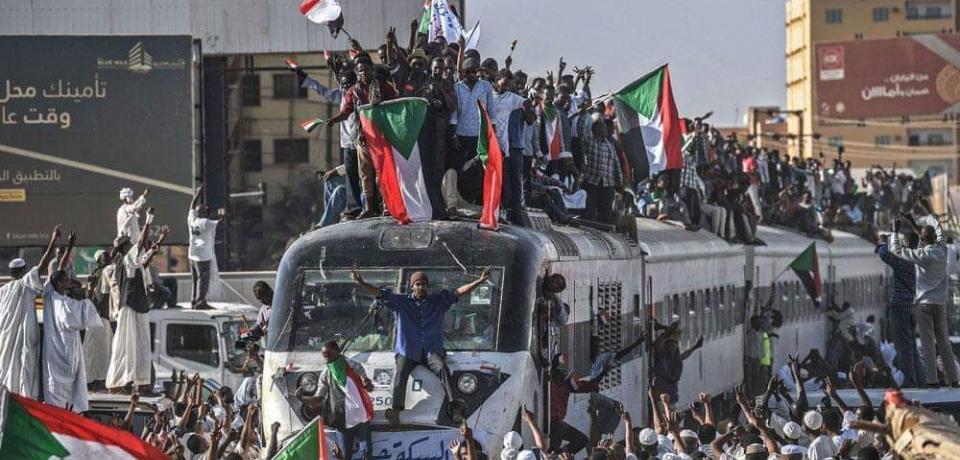
Since December 13, 2018, an impressive popular uprising has emerged in Sudan, and has continued to unfold ever since, with the primary slogan "Tasgut bas" (overthrow, that’s all!).
The inhabitants of the city of Al Damazin (the capital of Blue Nile State), followed by those of Atbara in the north-east of the country on 19 December, were the first to protest against the tripling of the price of bread, against a background of drastic austerity measures, inflation and massive corruption driven by the government. Then the demonstrations spread to the rest of the country and to the capital Khartoum, demanding the overthrow of the regime. Despite the repression that has already left dozens dead, thousands wounded and tortured, the uprising has become massive and deeply self-organized, developing an extraordinary imagination to propose peaceful initiatives on a daily basis.
This movement stands against the power monopolized by President Omar Al Bashir, a military man who seized power in 1989 with the intention of never letting go, who, with his entourage, corrupted the various security apparatus and his party the National Congress (formerly the Islamist National Front). This clique has repeatedly appropriated the country’s wealth and reduced democratic freedoms and the rights of women and oppressed minorities.
El Bechir is charged with war crimes, crimes against humanity and genocide by the International Criminal Court in The Hague concerning repression in Darfur. This led to the secession of Southern Sudan in 2011, where oil wealth was concentrated, and Sudan has since been plunged into economic slump. Recently, Al Bashir tried to save his regime by approaching the Saudi Arabian monarchy, the Egyptian dictator Al-Sissi, Putin’s Russia, Bashar Al Assad and the far-right government of Israel. Salah Gosh, the head of Special Services, was also able to travel to France in the autumn to meet with an official from Macron’s party.
At the same time, the Sudanese regime is zealously implementing the IMF’s anti-grassroots economic programmes: cuts in public services, privatisations and increases in basic prices.
Power had already been challenged on the streets in previous years, especially by students, but today we are witnessing the country’s transition into a revolutionary process of the kind that emerged in the Arab region in 2011. The organisation of the uprising was first and foremost driven by the Sudanese Professional Association (SPA), composed of networks of doctors, teachers and other civil servants and professionals. They kept the principles and memory of class struggle trade unionism alive while the unions were put under the total control of the regime, and progressive militancy severely repressed over long decades (We should remember that the Sudanese Communist Party was one of the most massive in the Arab world). They have been able to combine this memory and give a prominent place to youth but also to women, which allows a strong inventiveness and the necessary size and strength in the current situation.
Under this impetus, the revolution adopted a plural political and organizational leadership called Forces of Freedom and Change, with a founding document of the same name that lays the foundations for a democratic break with the regime and its policies. This coordination publishes a weekly press releases presenting a daily timetable of mobilizations, but also daily guidelines, district by district, taking into account technical and safety aspects. "Committees of resistance at the grassroots" have been created as part of this collective process.
The revolution set itself the objective of a "political" general strike through peaceful means, alone, capable, according to it, of overthrowing this power, and leading to a truce declared by the armed opposition. The movement’s objective is a "political" general strike with peaceful means. While the broadened nature of this branch to include various unions or parties currently limits the social aspects of its programme, the convergence with the organized labour movement is beginning, it has thus taken up the demands of striking Port Sudan port workers against the privatization of the container terminal, which is intended to be bought by a Philippine company.
The Fourth International expresses its full solidarity with this powerful uprising of the Sudanese people, and calls for an end to repression and the release of detainees. We wish them every success in their goal of overthrowing an autocratic regime that has been responsible for the suffereing of the Sudanese people for too long. We hope that this dynamic will contribute to the momentum of popular struggles
Adopted unanimously by the International Committee
of the Fourth International
Amsterdam
5 March 2019